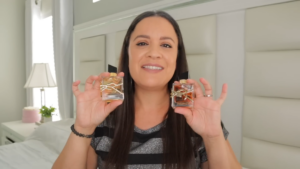Effective communication is the cornerstone of any successful relationship, whether personal or professional. It involves more than just exchanging words; it’s about understanding and being understood. In relationships, the ability to communicate effectively can make the difference between harmony and discord. When both parties feel heard and valued, conflicts are minimized, and trust is strengthened. However, communication can be challenging, especially when emotions run high. By honing communication skills, individuals can build stronger, more resilient relationships that withstand the tests of time and circumstance.
A harmonious relationship requires ongoing effort and dedication, with communication playing a pivotal role. Misunderstandings often arise when communication breaks down, leading to frustration, resentment, and distance. In contrast, when couples or partners communicate openly and honestly, they create a foundation of mutual respect and empathy. This foundation not only helps in resolving conflicts but also in preventing them from escalating. By prioritizing effective communication, relationships can thrive, fostering an environment where both parties feel supported and understood.
What is Effective Communication in Relationships?
Effective communication in relationships involves clearly expressing thoughts, feelings, and needs while actively listening to your partner. It’s not just about talking but about ensuring that both parties are on the same page. The main problem arises when communication is one-sided or lacks clarity, leading to misunderstandings. These misunderstandings can result in unresolved issues, creating emotional distance between partners. By practicing effective communication, couples can address problems head-on, reducing the likelihood of long-term conflicts and fostering a deeper connection.
The Consequences of Poor Communication
Poor communication can have detrimental effects on relationships. When partners fail to express themselves clearly, it often leads to assumptions and misinterpretations. These can snowball into larger issues, causing tension and frustration. Over time, unresolved conflicts can erode trust and intimacy, leading to a breakdown in the relationship. To avoid these negative outcomes, it’s crucial to develop good communication habits. These habits include active listening, expressing emotions constructively, and regularly checking in with each other to ensure mutual understanding and alignment.
1. Understanding the Role of Active Listening
Active listening is a critical component of effective communication. It involves fully concentrating, understanding, and responding to your partner’s words. Instead of merely hearing the words spoken, active listening requires paying attention to the emotions and intentions behind them. This helps in avoiding misunderstandings and makes your partner feel valued and heard. Practicing active listening can significantly improve the quality of your interactions, as it shows your commitment to understanding and supporting each other.
2. Expressing Emotions Constructively
How you express your emotions plays a significant role in the health of your relationship. It’s essential to share your feelings honestly without placing blame or criticism on your partner. Constructive expression means using “I” statements instead of “you” statements, which can come across as accusatory. For example, saying “I feel hurt when…” instead of “You always make me feel…” fosters a more open dialogue. This approach minimizes defensiveness and encourages a collaborative resolution to issues, strengthening the relationship.
3. Regular Check-Ins for Mutual Understanding
Regular check-ins are an excellent way to maintain effective communication in a relationship. These check-ins involve setting aside time to discuss how both partners feel about the relationship, addressing any concerns before they become significant issues. It’s a proactive approach that helps in maintaining alignment and understanding between partners. By regularly engaging in these conversations, you can ensure that both of you are on the same page, which reduces the chances of misunderstandings and fosters a stronger, more connected partnership.
Building a Stronger Relationship Through Communication
Effective communication is the foundation of a healthy and harmonious relationship. By focusing on active listening, constructive emotional expression, and regular check-ins, partners can build a strong connection based on trust and mutual understanding. These practices help in addressing issues early, preventing them from escalating into larger conflicts.
Investing in communication skills yields long-term benefits for relationships. It not only enhances the bond between partners but also equips them with the tools to navigate challenges together. In the long run, effective communication fosters a supportive environment where both parties feel valued, understood, and loved, leading to a fulfilling and enduring relationship.








